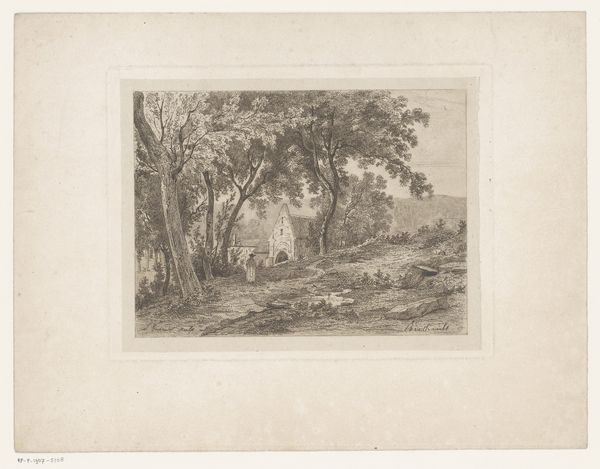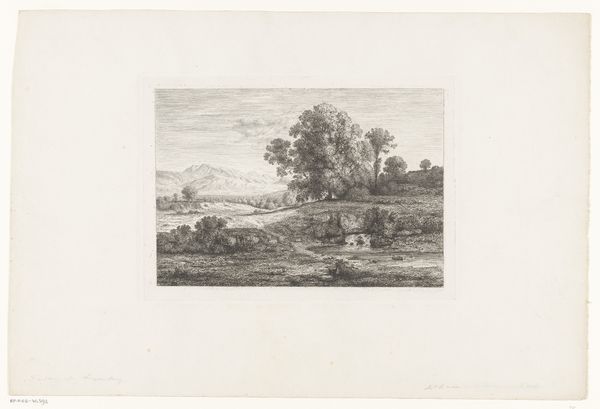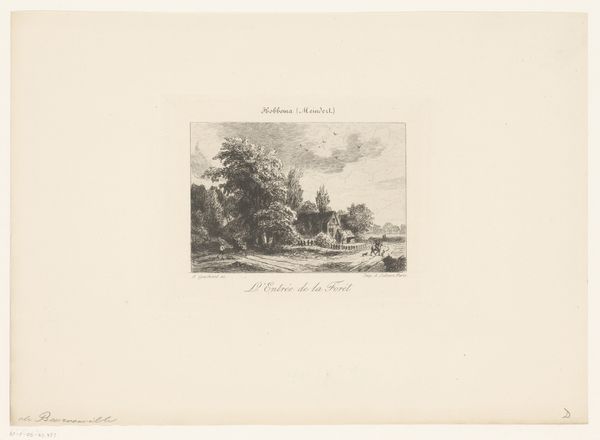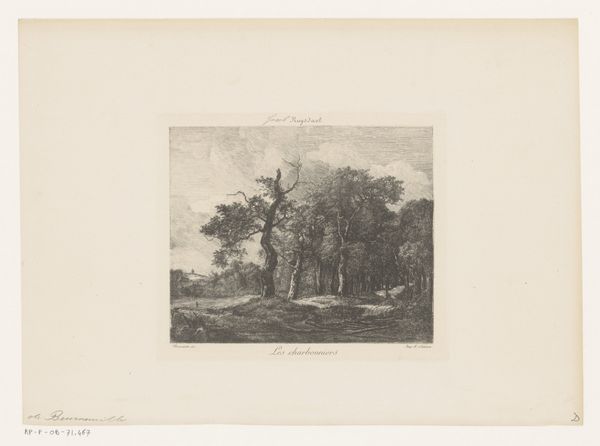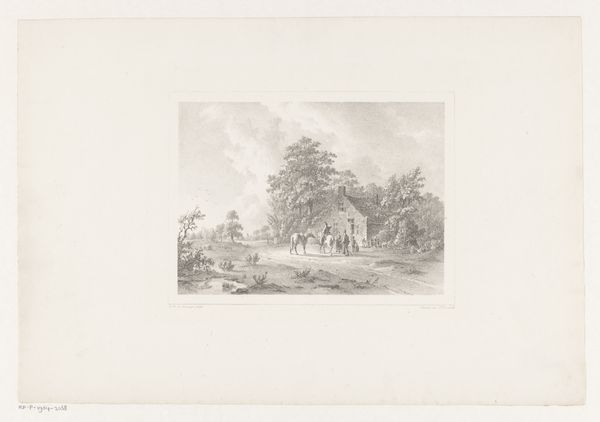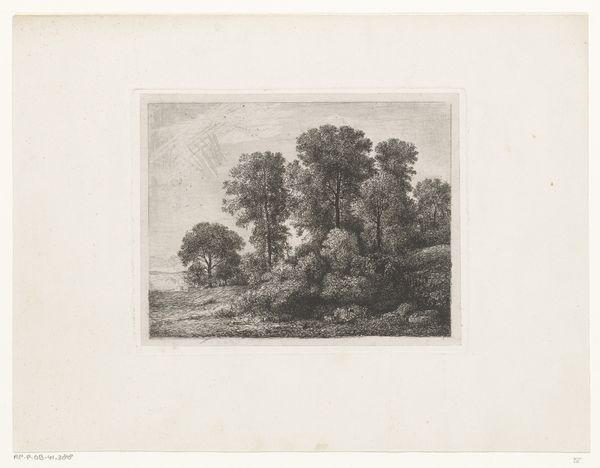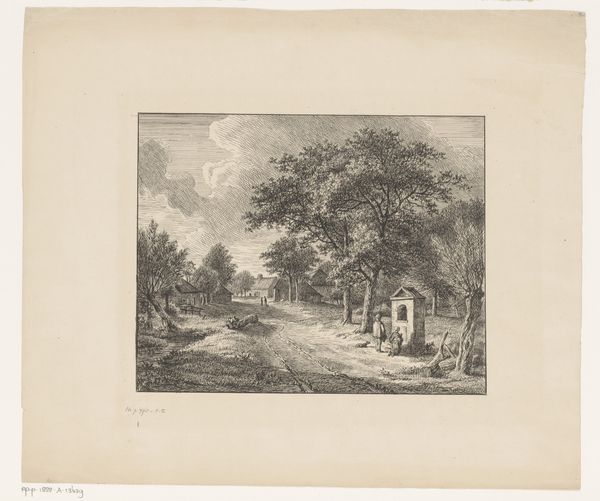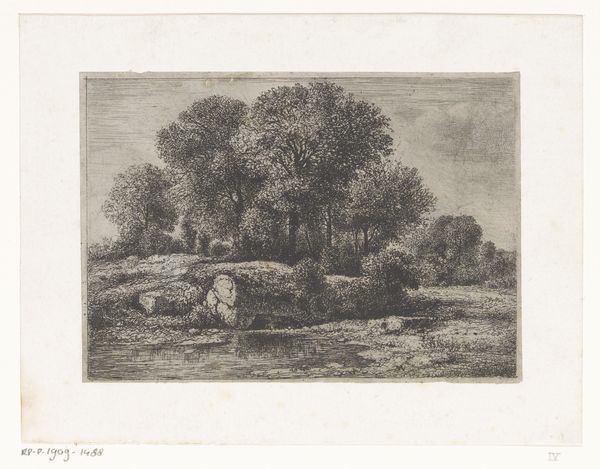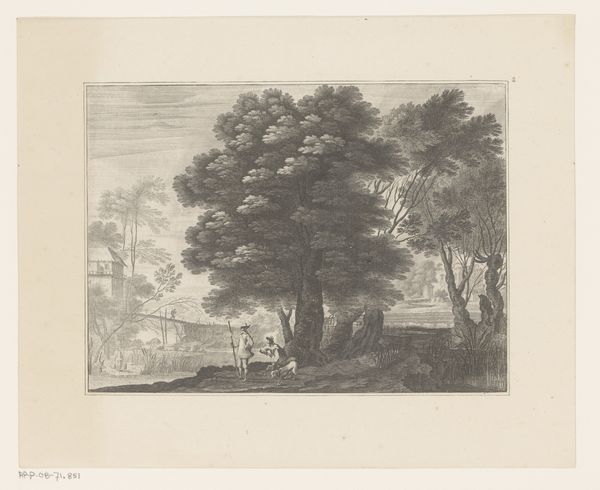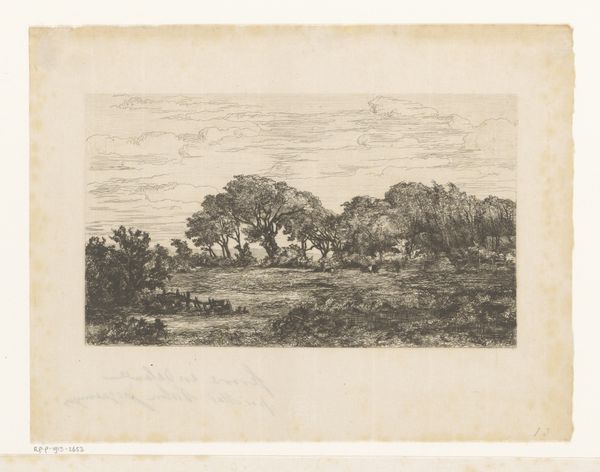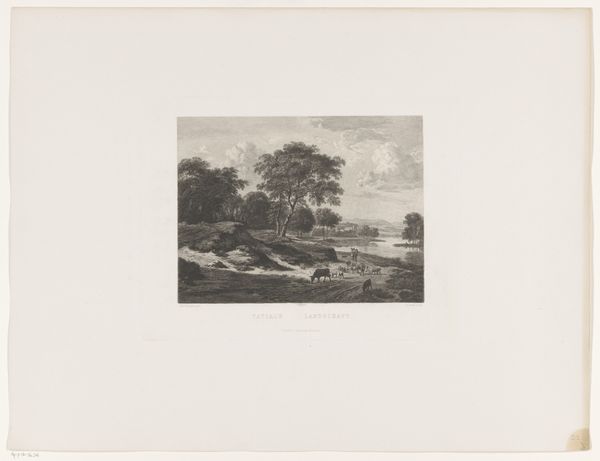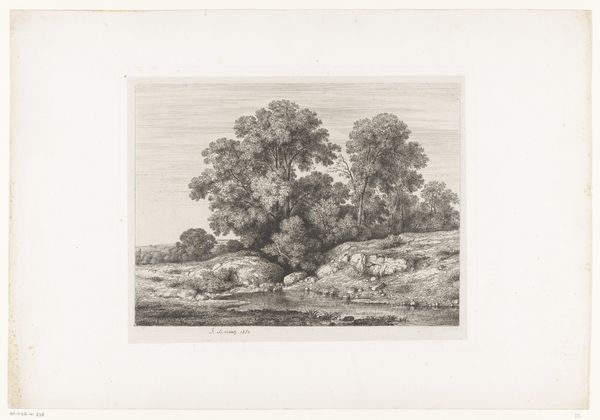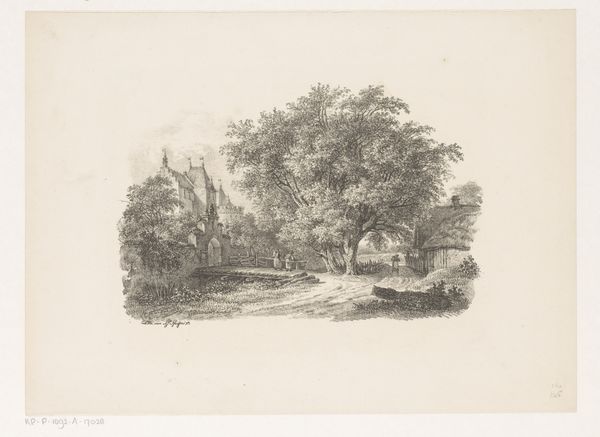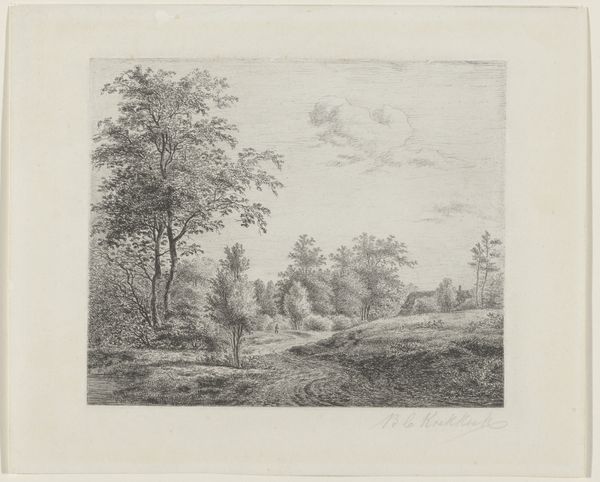
drawing, print, etching, paper, ink
#
tree
#
drawing
# print
#
etching
#
pencil sketch
#
old engraving style
#
landscape
#
paper
#
form
#
ink
#
romanticism
#
line
#
realism
Dimensions: height 223 mm, width 310 mm, height 140 mm, width 170 mm
Copyright: Rijks Museum: Open Domain
Editor: Here we have "Gezicht op het dal van Grésivaudan," or "View of the Grésivaudan Valley," created in 1850 by Jean Alexis Achard. It's an etching, a type of print made with ink on paper. It's such a detailed little landscape. What do you make of it? Curator: This etching allows us to examine the very means of production inherent in 19th-century landscape art. Think about the materials – the paper, the ink, the etching tools. Achard’s labour becomes visible in each line. Editor: Labour? It seems more like capturing a peaceful scene. Curator: But how is that scene mediated? Consider the rising popularity and accessibility of printmaking at the time. Etchings allowed for wider distribution of images, democratizing art consumption. This connects to larger shifts in class structure and land ownership happening in France. How might viewing nature shift when it is turned into a reproducible object? Editor: I hadn’t thought of it that way. So, by reproducing this image, Achard also shifted access to views? Curator: Precisely. He also transforms it into a commodity. Consider where the materials originated. Who benefitted from its production and who did not? How might colonialism be at play? This "peaceful" scene is inseparable from material conditions of the era. Does seeing the print through this perspective change your interpretation? Editor: Definitely. The artistic labor and production process become clearer, almost obscuring that romanticized landscape view. Thanks, that’s given me so much to think about regarding material production.
Comments
No comments
Be the first to comment and join the conversation on the ultimate creative platform.
